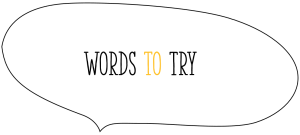21 Family is Socially Constructed
Anmol Sangha
 Family is an important sociological unit, and the concept of family is constantly changing. Socialization is the process in which individuals learn how to participate in society. Communities around the world have different ways of socializing. This means socialization varies for individuals in terms of behaviour, social norms, values, and beliefs. The way individuals interact with others is also dependant on socialization. We have certain expectations of how people should behave in public versus in private, and anything going against these norms is viewed negatively. Part of the socialization process is being in a family.
Family is an important sociological unit, and the concept of family is constantly changing. Socialization is the process in which individuals learn how to participate in society. Communities around the world have different ways of socializing. This means socialization varies for individuals in terms of behaviour, social norms, values, and beliefs. The way individuals interact with others is also dependant on socialization. We have certain expectations of how people should behave in public versus in private, and anything going against these norms is viewed negatively. Part of the socialization process is being in a family.
When hearing the term “family,” one might think of a father, a mother, and their children. Such an outlook is perpetuated by the way we are socialized and the impact of culture on individuals. An example would be dominant gender ideology and how it circumscribes marriage as a legal relationship between a man and a woman, one masculine partner and one feminine. Traditional family norms show one partner, the man, going out of the house to work and provide for the family, while the other, the woman, stays home and cares for the children and household. But throughout time, that view has changed, and we have learned that there is no certain way to view the concept of family. Real-world structures of family include single-parent households, same-sex parent households, and so forth. From a sociological point of view, family is a social and ideological construction.
Even though a lot of institutional structures are in place that do not recognize it, shifts in understandings and expressions of sex, gender, and sexuality are factors contributing to new structures of family. Furthermore, the roles of family members have also changed with time. We now we see fathers who stay home or take parental leave from work. The support that the LGBTQ+ community has gained has paved the way for different family structures to be accepted. Same sex couples in Canada can now marry and adopt. Another change is that people are now choosing their families. Breaking ties from toxic family and creating a family of friends, sometimes called a “chosen family,” is not looked down upon as much as it had been in the past. The idea of “blood is thicker than water” is challenged by these new family dynamics.
Family is not a single structure. We seek to approach the concept of family from an intersectional point of view. Race, class, social status, gender, and sexuality all play a part in which social structures and social identities impact families. In the conservative ways of understanding family, we hear the argument that there is a lack of focus on “family values.” An example of “traditional family values” may be that the mother stays home and nurtures the children while the father provides financially for the family. However, a family that faces systemic racism would not be as able to follow these values because of the ways social structure and social identities intersect to reinforce oppression and privilege. In racialized families, both parents in the household, and sometimes even children, may need to work to be able to provide for the family. It is important to understand that the structures, expectations, and roles of family are always changing and vary with different life experiences.

Social construct: ideas/beliefs created by society and its institutions, which vary in different places and cultures
ideas/beliefs created by society and its institutions, which vary in different places and cultures

